Sid Rao – My digital superpower. Public Interest Tech

Transcript
Sid Rao: One of the most pressing tech issues which civil society is facing is the invisible data problem.
[Sid Rao, Ford-Mozilla Open Web Fellow, European Digital Rights. A bearded Indian man with a handlebar mustache, wearing a black t-shirt.]
Hi, I’m Sid Rao, and my superpower is to help you protect your digital privacy.
[A light blue animated cape and eye mask appears on Sid as he flexes his muscles. The cape says “digital privacy”.]
As part of my fellowship, I was based in European Digital Rights, 35 human rights organizations which are working in the digital space. Part of my main work was to work on projects related to privacy, how metadata can be exploited. As Internet end users, we don’t know what we are signing up for. We don’t know how our personal data is used, how we are being tracked, and most importantly how all these things are impacting your personal life.
So what we did through Hakuna Metadata Project was, I built a tool which anyone can use to see how their Internet service providers can see what they’re doing, and how they can build a digital persona.
[An animated x-ray machine scans Sid’s body to reveal the words “attack”, and “privacy”.]
Example of which, if my Internet service providers start tracking what I do on the Internet and try to build a person of it, I am branded as a terrorist—mainly because one set of my metadata says I’m a brown guy, I’m from Global South, I’m from Southeast Asia. There’s one set of metadata, which is about how I look, and with a beard, and things like that. On the other hand, I’m a security and privacy researcher, and most of my academic papers start with attacking this protocol for something.
So, I built this tool, and I was surprised to see the very significant word in my profile, my digital persona, was the word “attack.” What if this data is sold to someone, for example, to the government agencies? And now I can relate that every time I go to the airport I’m called for random checks, probably this is the reason. So, using this tool everyone can see what is happening, how day-to-day Internet activities can be used for monetizing, can be used for tracking, can be used for profiling.
[Sid Rao transforms into a silhouette of blue and white data and numbers, with words such as “Attack”, “Security”, “Southeast Asia”, and “Privacy” forming inside his body outline.]
My freedom matters the most than anything else in my life, and I’m sure that it’s the same for everyone. And before it’s too late, I have to take a stand. I’m doing it for myself, but for everyone.
[Ford Foundation logo: a globe made up of a series of small, varied circles. Mozilla logo.]
[Sarita Gupta, Co-director, Jobs With Justice. A South Asian woman, wearing a mustard-yellow top and black pants.]
Public interest technology, from the realm of workers’ rights, it’s about being able to utilize technology in ways that truly improve jobs. For example, imagine for a moment, if you can’t predict your schedule at work, how do you budget appropriately or how do you plan for childcare or eldercare or let alone make appointments to see your own doctor should you need it? For too many working people in this country, the issue of scheduling is really challenging. We have an opportunity right now to engage with scheduling software companies to help us think about ways in which they can help distribute more equitable hours of work to more working people. What’s been interesting is the reaction of companies that actually do the scheduling technology. Companies like Paychex, who have said to us, “We can actually address this, and we can make this possible, but we never knew this was such an issue and such a need.”
I think technologists and working people, or organizations representing working people, need to be in the room together to really understand what problems we’re solving for and to collaborate and design systems and tools that will really benefit everybody. Another really great example—Clear My Records Project. Around the country, many groups have been winning Ban the Box campaigns to ensure that returning citizens are not discriminated against when seeking jobs. Through a partnership with technologists, they were able to create an app where returning citizens can actually delete the records themselves to ensure that their files are free of their criminal records and they’re able to seek a job and not face any kind of discrimination. So those are some of the kinds of examples of ways in which working people can harness technology in a way to either improve jobs or improve access to jobs. Public interest technology can fuel the imaginations and the creativity of social change leaders to think more boldly and expansively around the types of solutions that we need to meet the social needs of our time.
[This is tech at work for the public! Hashtag Public Interest Tech. Ford Foundation dot org forward slash tech. Ford Foundation logo: a globe made up of a series of small, varied circles.]
Accessibility Statement
- All videos produced by the Ford Foundation since 2020 include captions and downloadable transcripts. For videos where visuals require additional understanding, we offer audio-described versions.
- We are continuing to make videos produced prior to 2020 accessible.
- Videos from third-party sources (those not produced by the Ford Foundation) may not have captions, accessible transcripts, or audio descriptions.
- To improve accessibility beyond our site, we’ve created a free video accessibility WordPress plug-in.
One of the most pressing tech issues today is the invisible data problem. As Sid Rao, a security analyst specializing in communication protocols, explains, everyday internet activity can be used for tracking and monetizing purposes. “We don’t know how we’re being tracked,” he says, “or how our personal data is being used.”
Metadata can be used to uphold stereotypes and biases, causing negative impacts in the lives of internet users. Digital privacy is the right of every internet user. Analysts like Rao are working to ensure users are informed about how metadata from their internet activities is being used.
Sid Rao is part of a larger community that wants to see technology serve the greater welfare of society. We call this Public Interest Tech.
Other videos in this series
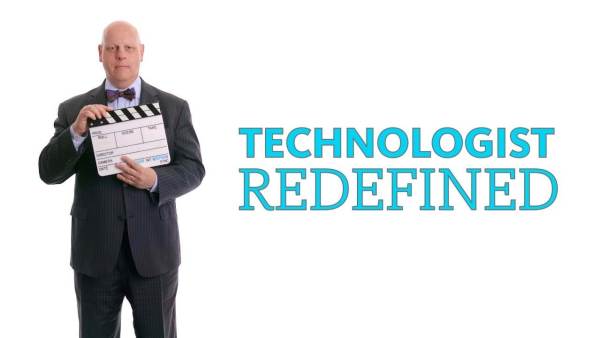
Danny Weitzner – Privacy and policy: a new school of thought. Public Interest Tech
Privacy is fundamental to our lives. Unanswered public policy questions raised by new technologies need to be addressed. Danny Weitzner, from the Massachusetts Institute of Technology (MIT), says as a society, we have to be directly engaged in these public interest technology questions to ensure new tools support human values.
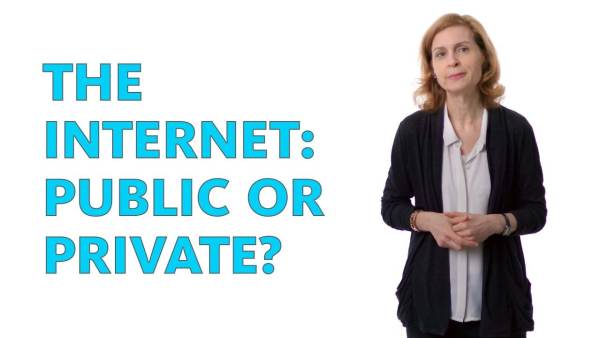
Susan Crawford – The internet: public or private? Public Interest Tech
Internet access is an indispensable factor when it comes to opportunities and resources needed for economic mobility. Public interest technologist Susan Crawford says government regulation is necessary to ensure provider incentives align with the public’s best interest and help create a better future for all.

Michelle Miller – A new age of advocacy. Public Interest Tech
Workers can use tools of the internet to push for better working conditions and outcomes, building a future of work that works for all. Michelle Miller, co-founder of coworker.org, focusses on building digital communities that put the power of numbers in the hands of the workforce.

Kade Crockford – Can computers discriminate? Spoiler alert: yes. Public Interest Tech
The age of automated decision making, through algorithms, can exacerbate inequalities in society. The ACLU’s Kate Crockford believes we need to bring technologists into the public interest fold to address this worrying issue. Lawyers like Crockford play an important part in ensuring digital technologies work for the benefit of all.

Joy Buolamwini – Fighting the “coded gaze:” How we make artificial intelligence benefit all. Public Interest Tech
The automation of how computers detect, classify, and identify faces can favor some races and genders over others and also deepen existing inequalities. Public interest technologist Joy Buolamwini is building tools to help researchers code in a more inclusive way.
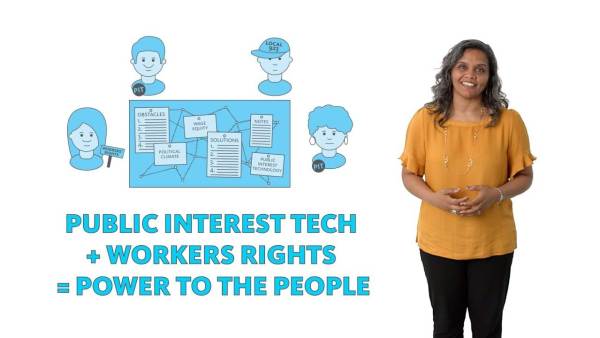
Sarita Gupta – The future of work(ers) rights! Public Interest Tech
Technology can help build a future of work that works for all. Sarita Gupta from Jobs with Justice explains how we can use technology to improve workers’ lives. Public interest technologists and social change leaders need to come together to design systems and tools that benefit all.
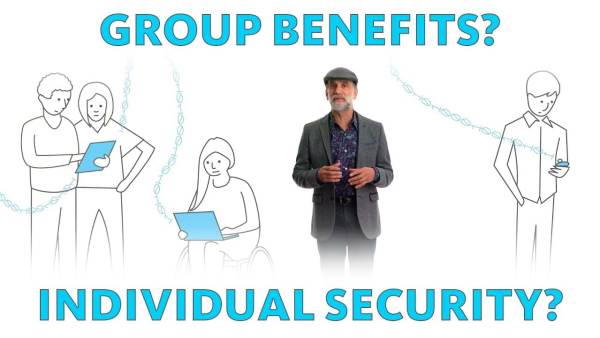
Bruce Schneier – How to survive in a hyperconnected world. Public Interest Tech
Cybersecurity expert Bruce Schneier says we need to find innovative ways to use surveillance data for the public good, while still maintaining our individual security. Tech decisions have policy ramifications, and policy decisions have tech ramifications—bridging the two worlds benefits everyone.
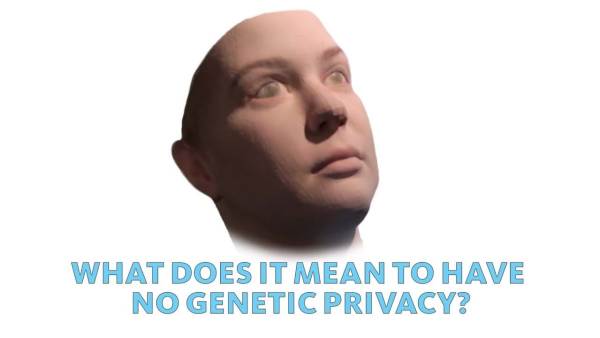
Heather Dewey-Hagborg – What can your genetic portrait tell the world? Public Interest Tech
Through her work, artist Heather Dewey-Hagborg asks deep questions about technology and how it functions and impacts society. She says we need to make the hidden world of biotechnology more visible to people, acknowledging its shortcomings and nuances to help ensure genetic privacy.
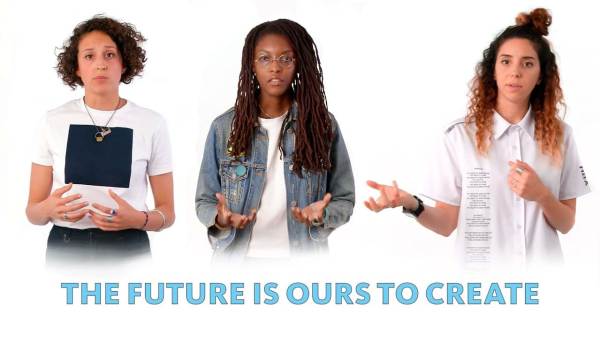
Hyphen-Labs – What does the future look like? Public Interest Tech
Technology can help us envision new ways of living. Artists can show us just what technology is capable of doing. But for tech to be truly inclusive, everyone needs to have a say in how it’s created. Artist collective Hyphen-Labs encourages experimenting with how we see the world.
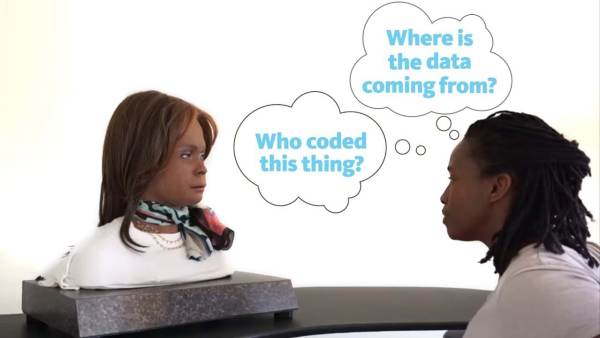
Stephanie Dinkins – Conversations with a robot. Public Interest Tech
There is implicit bias in artificial intelligence (AI). Artist Stephanie Dinkins wants data scientists and technologists to think about the ethical implications of AI and how better systems can be built for the future. Her work questions what machines are doing and why, so they can be more equitable and fair.
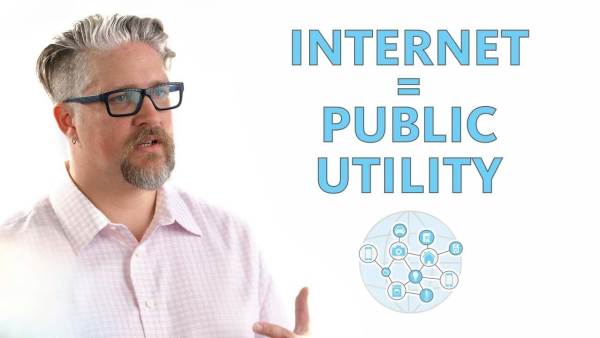
Éirann Leverett – Calling all hackers for good. Public Interest Tech
The internet is a shared safe space and should remain so. Éirann Leverett believes hacking can be used for public good. He maintains the issue of privacy and security should be seen as a consumer rights issue, and the internet should be treated as a public utility.
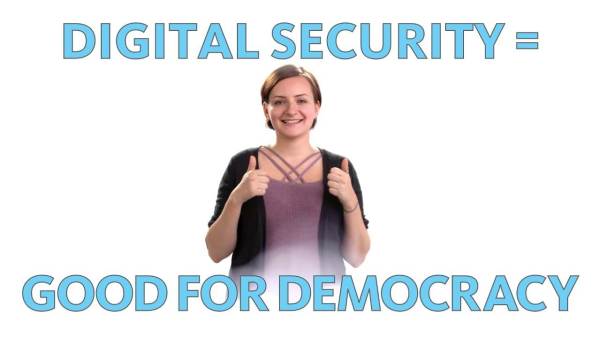
Jennifer Helsby – Digital security = good for democracy. Public Interest Tech
Having a free and open internet allows every person to read and speak freely online. Open Web Fellow Jennifer Helsby works to uphold freedom of the press and digital security, which are essential for journalists to maintain democracy.
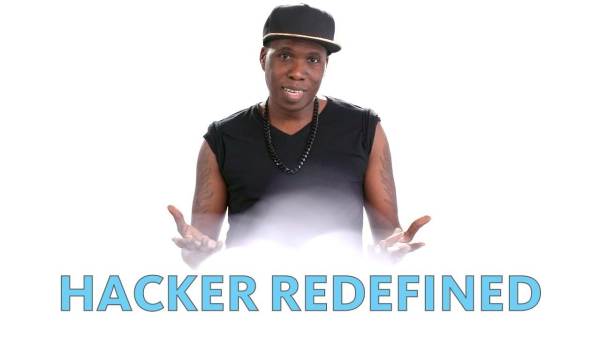
Matt Mitchell – I’m a hacker. For good. Public Interest Tech
Organizations need to be proactive in protecting themselves from digital threats. Hacker Matt Mitchell says it’s not a matter of if you will be hacked as an organization, it’s a matter of when. Having an understanding of these digital threats and planning before problems occur is vital.
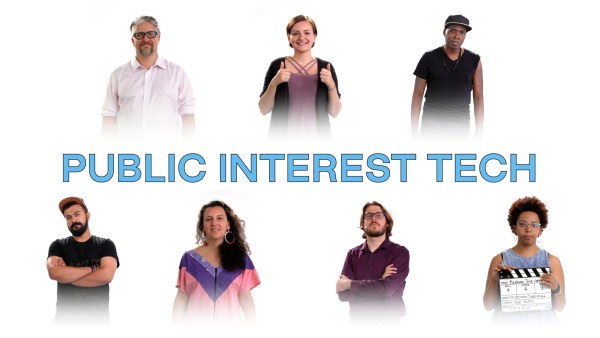
Meet the future of tech. For good. Public Interest Tech
Public interest technologists show us how tech can work for social good and help fight inequality. They work to bridge the gap between what technologies are trying to build and what social scientists are trying to solve.
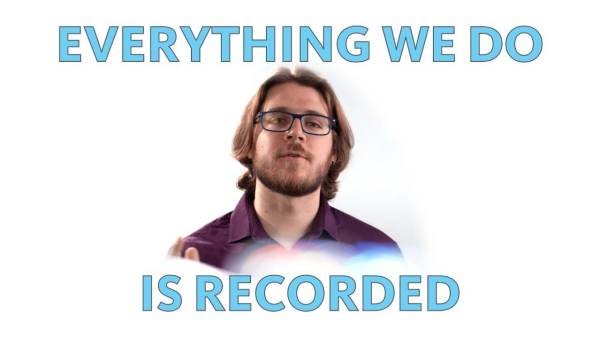
Etienne Maynier – Are these 5 tools in your organization’s digital security toolbox? Public Interest Tech
Fighting for a society that’s more equal means upholding the individual right to privacy. Etienne Maynier explains that digital surveillance is a pressing threat that feeds inequality. Protecting ourselves and our information is an important part of using technology to create a better society for all.
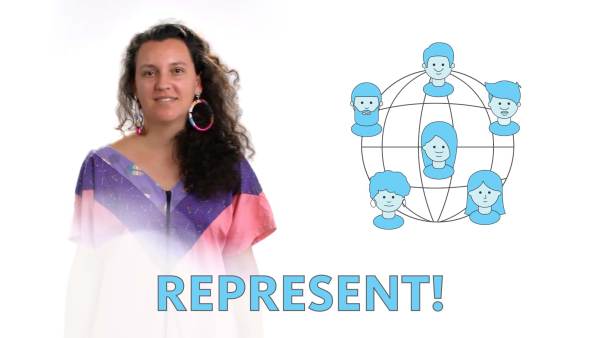
Steffania Paola Costa di Albanez – Who gets to make technology? Public Interest Tech
In the fight for equality, the way technology is developed should be a key issue. Open Web Fellow Steffania Paola Costa di Albanez says developers should reflect the diversity of those who use technology and represent a wide variety of user experiences, from women to Black women.
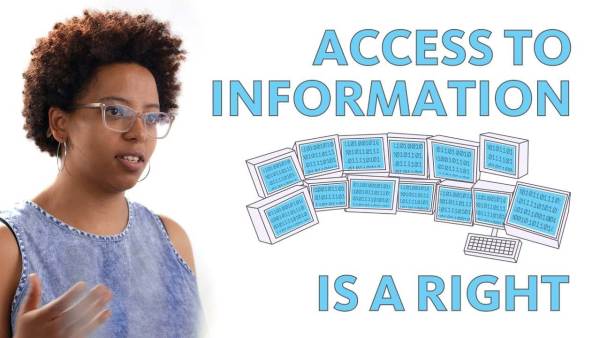
Berhan Taye Gemeda – Uncensored. Public Interest Tech
Censorship and online surveillance decrease opportunities for civic engagement. Social justice activist Berhan Taye Gemeda says access to the internet is a right, and she believes the internet should be governed by the public because it was created for the public. Accessible internet is essential for social change.

What is Public Interest Tech?
As it rapidly grows and changes our lives, technology can deepen existing inequalities in our world. For it to make a positive difference, public interest technologists work to ensure new and existing tech helps dismantle inequality and benefit the social good.